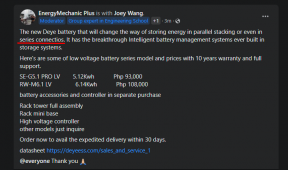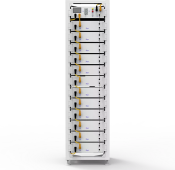Hey guys,
I've finally completed my 3x 12kW Deye inverters with 3x Seplos MASON 280 DIY kits, and I am now looking at the next shiny thing, the Deye SG01HP3 50kW to run our whole installation instead :D
It runs on high voltage batteries (150-800V) and I am wondering if anyone knows of DIY BMS units that support series connection, so I can series connect multiple 48V systems to get the high voltage that this system requires?
I've finally completed my 3x 12kW Deye inverters with 3x Seplos MASON 280 DIY kits, and I am now looking at the next shiny thing, the Deye SG01HP3 50kW to run our whole installation instead :D
It runs on high voltage batteries (150-800V) and I am wondering if anyone knows of DIY BMS units that support series connection, so I can series connect multiple 48V systems to get the high voltage that this system requires?






